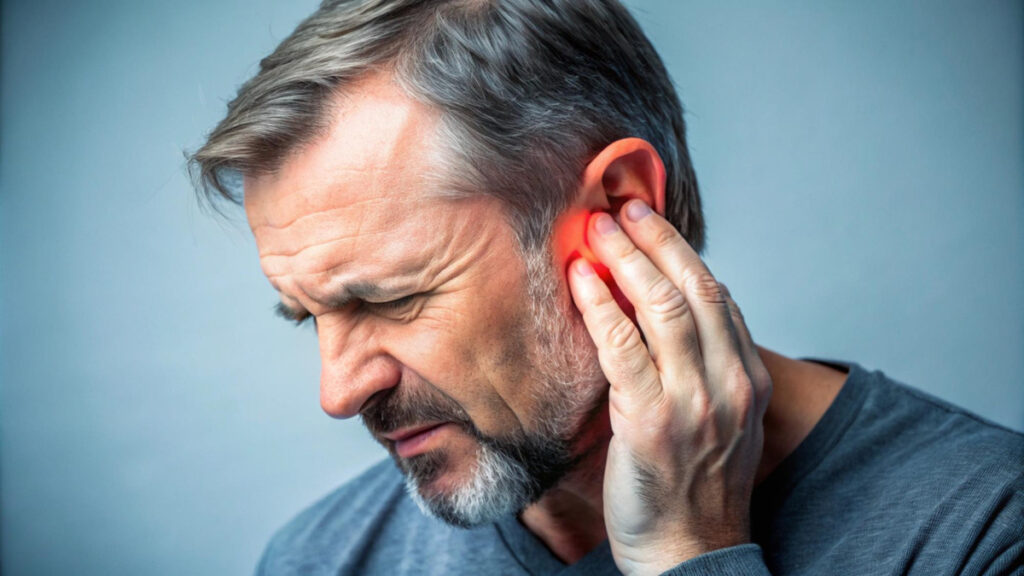Is there a tinnitus cure in 2025? For millions of people living with the constant ringing, buzzing, or hissing in their ears, this question represents more than curiosity—it represents hope.
Tinnitus is a complex condition that affects an estimated 10-15% of the adult population, and while it’s often manageable, a true cure remains elusive.
However, emerging research and innovative therapies offer renewed optimism.
What Is Tinnitus and Why Is It So Difficult to Treat?
Tinnitus is the perception of sound without an external source.
It can vary in pitch, volume, and frequency, and may be temporary or chronic.
Common causes include hearing loss, noise exposure, ear infections, head trauma, certain medications, and circulatory disorders.
In many cases, the exact cause is unclear.
What makes tinnitus so difficult to treat is its origin in the brain, not the ears.
When auditory input is disrupted, the brain attempts to compensate by generating phantom sounds.
This neurological basis means treatments must address not just the ears, but also how the brain processes sound.
Current Medical Approaches for Tinnitus Cure in 2025
Although there is no FDA-approved cure for tinnitus, several treatments help manage symptoms.
- Sound Therapy: Uses external noise to mask or reduce the perception of tinnitus.
- Cognitive Behavioral Therapy (CBT): Helps patients reframe their response to tinnitus and reduce its emotional impact.
- Hearing Aids: Beneficial for people with hearing loss and concurrent tinnitus.
- Tinnitus Retraining Therapy (TRT): Combines sound therapy and counseling over time.
- Medications: Though no drug cures tinnitus, antidepressants or anti-anxiety drugs may help reduce distress.
These approaches are often used in combination, tailored to each individual’s condition and coping ability.
Breakthrough Research Heading into 2025
As we approach 2025, several promising areas of research are bringing new hope to tinnitus sufferers.
- Neuromodulation: Techniques like transcranial magnetic stimulation (TMS) and vagus nerve stimulation (VNS) aim to retrain brain circuits involved in tinnitus.
- Regenerative Medicine: Researchers are investigating ways to regenerate hair cells in the inner ear using stem cells or gene therapy.
- Central Nervous System Modulation: Some experimental drugs and brain-targeted therapies seek to modulate auditory pathways at the cortical level.
- Artificial Intelligence (AI): Machine learning is being used to identify patterns in patient responses and tailor more effective interventions.
While most of these therapies are still in clinical trials, their progress is encouraging.
Even if they don’t result in a universal cure by 2025, they may lead to highly individualized treatments with significant symptom relief.
Can Tinnitus Be Cured by 2025?
The idea of a definitive cure by 2025 is optimistic but not guaranteed.
The nature of tinnitus, especially in its chronic forms, makes a one-size-fits-all solution unlikely.
However, advances in understanding the brain’s role in tinnitus, paired with cutting-edge treatment modalities, suggest that we may see major breakthroughs.
Even partial relief or symptom reversal through targeted therapies would mark substantial progress.
In the meantime, managing tinnitus with a combination of medical, lifestyle, and holistic strategies remains the most effective approach.
Lifestyle and Natural Strategies That Help
While waiting for new treatments to mature, individuals can take several steps to manage their tinnitus naturally.
- Reduce Exposure to Loud Noise: Protect your ears in noisy environments.
- Practice Stress Management: Meditation, yoga, and therapy can lessen the emotional toll.
- Improve Sleep Hygiene: Establish a regular sleep schedule and avoid stimulants before bed.
- Sound Enrichment: Use white noise machines or nature sounds to reduce the contrast of tinnitus in quiet settings.
- Limit Caffeine and Alcohol: These can aggravate symptoms for some people.
Lifestyle adjustments often reduce the perceived intensity of tinnitus and improve quality of life.
The Role of Supplements in Tinnitus Relief
For those seeking additional support, natural supplements can be a valuable part of a tinnitus management plan.
Sonus Complete is one such supplement, developed to support auditory and neurological health.
Its formulation includes a blend of vitamins, minerals, and plant-based antioxidants such as vitamin C, B6, B12, niacin, folate, garlic, hibiscus, and green tea.
These ingredients are chosen for their ability to reduce inflammation, support circulation, and protect nerve cells.
By targeting oxidative stress and promoting neurological balance, Sonus Complete may help reduce the intensity and frequency of tinnitus symptoms.
It is stimulant-free, non-GMO, and produced in FDA-approved facilities.
Thousands of users report improved clarity, better sleep, and reduced ringing with consistent use.
The Path Forward
While a universal cure for tinnitus by 2025 remains uncertain, the landscape of treatment is rapidly evolving.
From neuromodulation to regenerative medicine and AI-driven therapies, science is moving closer to meaningful solutions.
In the meantime, a comprehensive strategy that includes lifestyle changes and natural support like Sonus Complete can offer relief and hope.
To learn more about Sonus Complete and how it may help you regain control over your auditory health, visit the official website today.










3 Responses